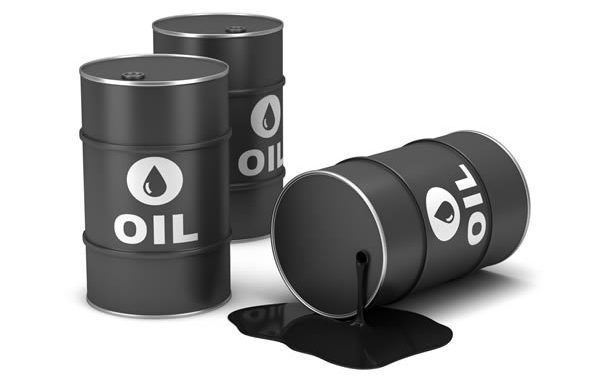
…OPEC agrees to 1.2m bpd cut
By Adewale Sanyaolu with agency reports
Nigeria’s 2016 budget got a boost yesterday, as the Organisation of Petroleum Exporting Countries (OPEC) agreed to an oil cut of 1.2 million barrels per day (bpd) in a bid to scale up oil prices that had hit an all time low of $27.
Oil & gas takeholders in Nigeria had raised concern that OPEC members may not agree to the cut, particularly as Nigeria, Iran and Libya were exempted from the cut due to their peculiar situations. But contrary to their fears, the cartel went ahead yesterday to seal a deal many saw as healthy for the 13 member cartel.
But Nigeria’s Minister of Petroleum Resources, Mr. Ibe Kachikwu, while speaking on the sidelines of the OPEC meeting, expressed delight about the latest deal, saying that OPEC will set up a monitoring team to ensure compliance.
It is expected that Nigeria will be better off with the deal considering that its 2016 budget predicated on $38 per barrel and stands to gain extra income, especially as the deal has propelled crude to over $50 per barrel.
Meanwhile, Lukoil, Russia’s No. 2 oil producer, says it will support any decision the energy ministry takes related to OPEC’s output agreement, Chief Executive, Vagit Alekperov, said in a statement on Wednesday.
But shortly after the cartel’s decision to cut oil production output, prices rose to about $50.17 a barrel, recording 8.2 per cent gain.
This was the first time OPEC has agreed on oil output limit since 2008, sources in the producer group told Reuters, with Saudi Arabia accepting “a big hit” on its production and agreeing to arch-rival, Iran, freezing output at pre-sanctions levels.
“OPEC agreed to cut production to 32.5 million barrels per day Kuwait’s oil minister said. The cuts include Iraq reducing output by 200,000bpd to 4.351 million bpd beginning January.
Kuwait, Venezuela and Algeria have all agreed to monitor compliance with the OPEC agreement.
Non-OPEC member, Russia, also agreed to cut output by 300,000bpd. OPEC will meet with non-OPEC producers on December 9.
Under the fresh deal, Saudi Arabia would contribute around 0.5 million bpd by reducing output to 10.06 million bpd, the source said, while Iran would freeze output at close to current levels of 3.797 million bpd and other members would also cut production.
The source added that OPEC had also suspended Indonesia from OPEC and hence the exact combined reduction was yet to be calculated. The meeting was still ongoing after around six hours of debate.
“OPEC has proved to the skeptics that it is not dead. The move will speed up market rebalancing and erosion of the global oil glut,” said OPEC watcher, Amrita Sen from Energy Aspects.
Before the meeting, Saudi Energy Minister, Khalid al-Falih, said OPEC was focusing on significant cuts and hoped Russia and other non-OPEC producers would contribute a reduction of another 0.6 million bpd.
“It will mean that we (Saudi) take a big cut and a big hit from our current production and from our forecast for 2017,” Falih said.
Clashes between Saudi Arabia and Iran have dominated previous OPEC meetings. But the tone changed on Wednesday with Iranian Oil Minister, Bijan Zanganeh, saying he was positive since Iran had not been asked to cut output. He also said Russia was ready to reduce production.
“Moscow has agreed to reduce their production and cut after our decision,” Zanganeh said.
OPEC, which accounts for a third of global oil production, made a preliminary agreement in Algiers in September to cap output in an effort to prop up oil prices, which have halved since mid-2014.
OPEC said it would exempt Iran, Libya and Nigeria from cuts as their output has been crimped by unrest and sanctions. The September deal was seen as a victory for Iran. Tehran has long argued it wants to raise production to regain market share lost under Western sanctions when Saudi Arabia increased output.
Sources said that out of additional non-OPEC cuts of 0.6 million bpd, OPEC expected Russia to cut by 0.4 million. A Russian ministry source said the figure was “a bit excessive”.
OPEC member, Iraq, has also been pressing for higher output limits, saying it needs more money to fight the militant group, Islamic State.
Iran and Iraq together produce over 8 million bpd, only slightly behind long-time leader, Saudi, with 10.5 million bpd.
“If you get this deal done, it would be huge. You remove a lot of oil from the market and you get the Russian participation,” said veteran OPEC watcher and founder of Pira Consultancy, Gary Ross.
Bob McNally, President of Washington-based consultancy, Rapidan Group, said on Twitter that compliance with cuts would be key: “In deals with Russia, OPEC is like (the late US) President (Ronald) Reagan used to say: ‘Trust but verify’.”
Sun